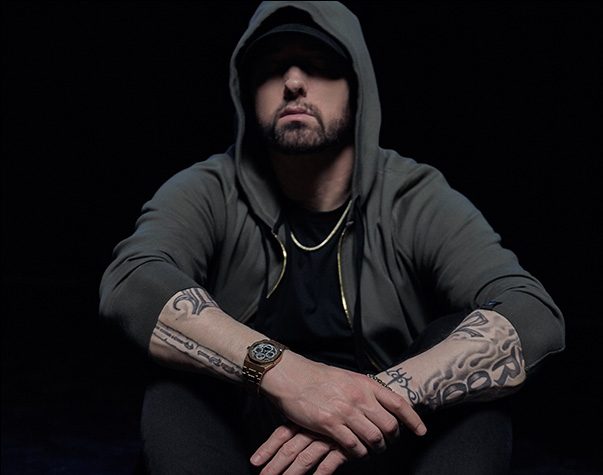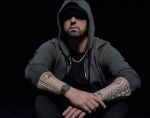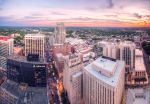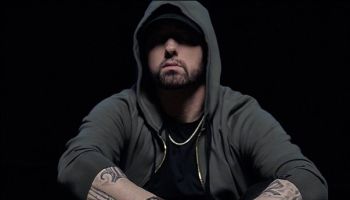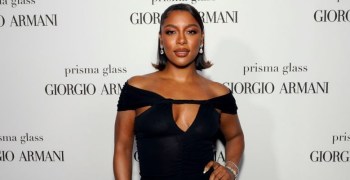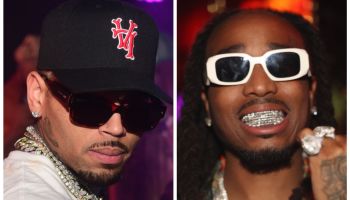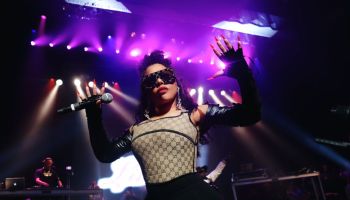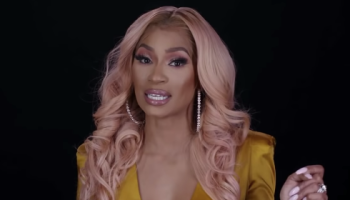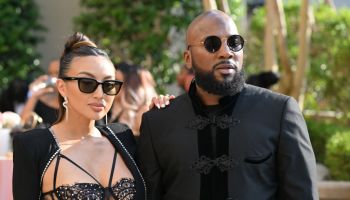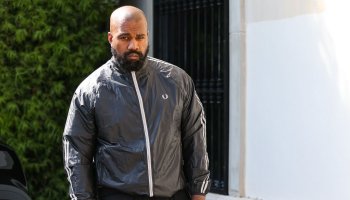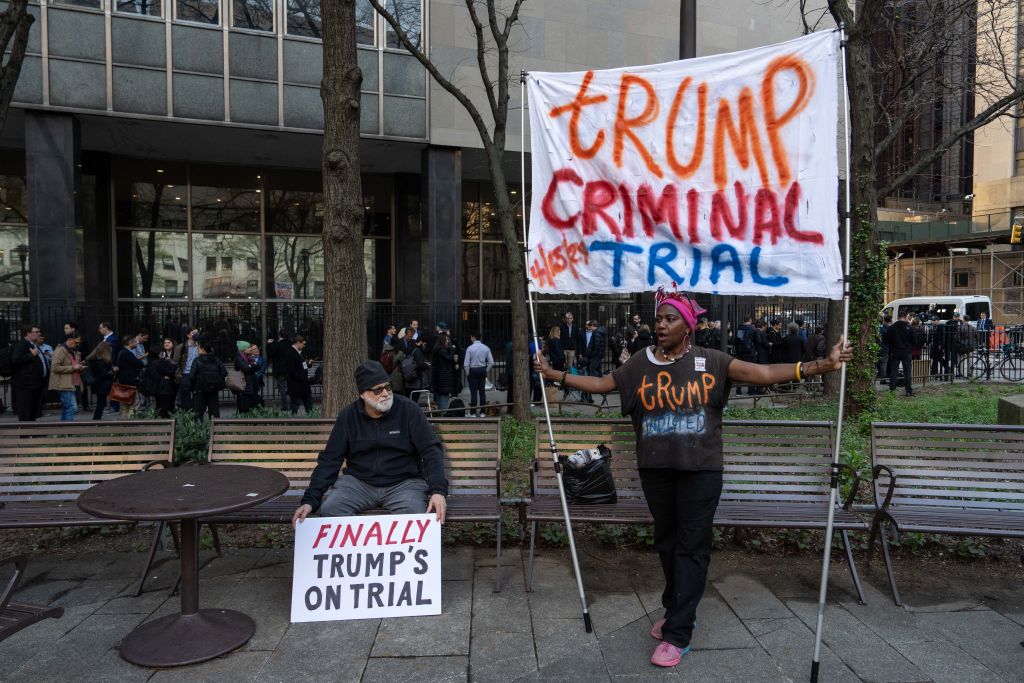
People demonstrate outside Manhattan Criminal Court on the first day of former President Donald Trump’s trial for allegedly covering up hush money payments linked to extramarital affairs, in New York City on April 15, 2024. | Source: ADAM GRAY / Getty
Donald Trump’s hush money trial begins Monday morning with jury selection in what will undoubtedly help shape the case’s outcome when the panel of peers delivers a verdict.
But the former president’s documented legacy of racism – not just on national and international levels but also and especially in his hometown of New York City, where the trial is set to take place in Manhattan Criminal Court – could come back to haunt him during jury selection from a pool of New Yorkers who are disproportionately racially diverse.
Those circumstances make it unclear whether any Black people will be selected as jurors in Trump’s hush money trial.
What is the trial about?
More than a year ago, a Manhattan grand jury voted to indict Trump for his alleged role in paying hush money to porn star Stormy Daniels. In the indictment, Manhattan District Attorney Alvin Bragg alleges that Trump committed business fraud, falsifying records while trying to hide the payment he made to Daniels.
The indictment made Trump the first former president to face criminal charges.
Prior to the indictment, Manhattan District Attorney Alvin Bragg’s office had been investigating alleged hush money Trump’s former lawyer paid to Daniels to keep her quiet about a sexual encounter she had with the former president.
Specifically, attorney Micheal Cohen testified that he paid Daniels $130,000 not to speak publicly to influence the 2016 election cycle that featured numerous women accusing Trump of sexual misconduct, including rape.
What’s that got to do with Black people?
That’s got absolutely nothing to do with Black people. What does have to do with Black folks, though, is that they make up more than 23% of New York City’s population, making it increasingly likely at least one could be selected to serve on the hush money trial’s jury.
The topic of race – particularly the Black race – is important in part because of Trump’s legacy of anti-Black racism in New York City, which has long been documented. That includes everything from policies forbidding Black people from living in Trump-owned real estate properties to a full-page ad taken out by Trump in the New York Times calling for the since-exonerated Black and brown boys falsely accused of raping a white woman to be given the death sentence.
In the decades since then, Trump has further stoked the flames of anti-Black by trafficking in racist tropes – including just last week during a suspected publicity stunt when he visited a Chick-fil-A restaurant in Atlanta, where a Black woman who just happened to be a Republican operative proclaimed that Black people “support” Trump regardless of “what the media tells you” as he bought the Black patrons chicken and milkshakes.
Trump has also called Bragg a “thug,” an “animal” and a “racist” on multiple occasions.
Considering all of those anti-Black variables, like when he called Nazis “very fine people” following a race riot in 2017, it’s hard to imagine such rhetoric will be forgotten, especially by anyone Black, in Trump’s prospective jury pool.
There’s also the possibility of Cohen being called to testify as a witness about his tell-all memoir that included allegations of Trump’s frequent racist outbursts, like his repeated “birther” claims disputing where former President Barack Obama was born. (He was born in Hawaii.)
Jury selection criteria
“There is almost nobody in New York who doesn’t have an opinion about Donald Trump,” trial lawyer Paul Applebaum told Reuters. “A lot of people think he’s either Satan incarnate or the second coming of Jesus.”
More from Reuters:
“Political orientation is not necessarily a cause for bias,” said jury consultant Melissa Gomez of IMS Legal Strategies. “But if it’s so strong that the person will be motivated to convict, that’s a problem.”
At a press conference on Friday, Trump was asked about the start of his trial.
“Jury selection is largely luck. It depends who you get,” he said.
Political orientation is an important component to take into consideration because not only is New York a traditionally “blue” state but New York City voters also lean ultra liberal. While jurors won’t be asked about political affiliation, it could still be a motivating factor while hearing evidence in the case.
The New York Times reported that jurors will, however, be asked related questions:
The jurors who remain will all be asked the same set of questions. One by one, they will talk — briefly and vaguely — about what they do for a living, their education and their families. They will be asked where they get their news, what radio and podcasts they listen to and whether they’ve read books written by Mr. Trump or his former fixer Michael D. Cohen, who is expected to be a central witness.
Other questions will be more pointed. Jurors will be asked if they’ve ever volunteered or attended a campaign event for Mr. Trump or one of his opponents. They will also be asked to divulge feelings or opinions they have about how Mr. Trump is being treated in this case.
But the jurors will not be asked how they voted in past elections, whom they plan to vote for, whether they have made political contributions or their party registration.
The hush money trial will effectively be a dress rehearsal for Trump as he awaits three other indictments moving toward their respective trial dates. The role that Black jurors could play in New York could mirror that of his other looming trials, including in Georgia where Trump is accused of trying to overturn the state’s election results in 2020.
That case, if it advances to the trial stage, will be held in Fulton County, which is 45% Black.
Implications for the 2024 election
Trump has already won enough delegates to secure the Republican presidential nomination. But his New York trial and other legal cases threaten to affect his candidacy in a serious way. He faces multiple felony indictments, including 34 counts of falsifying business records. A conviction could result in Trump being sentenced to four years in prison, the maximum punishment, or to an unspecified amount of time on probation.
However, if he is convicted in the New York case, he will then have a documented prior conviction heading into his other potential trials, giving him a status that increases the chances of prison time.
Just last month, a New York jury found he exaggerated the worth of his business and assets to secure loans and other financial benefits without revealing that he’s not as wealthy as he claims. That resulted in a $464 million judgment against Trump.
Also looming is the most serious case of all of Trump’s cases: a federal indictment accusing the former president of illegally hoarding classified documents at his Mar-a-Lago estate. The indictment includes 31 counts of violating a part of the Espionage Act of 1917. According to The Conversation, willful unauthorized possession of information that, if obtained by a foreign government, might harm U.S. interests is generally enough to trigger a possible sentence of 10 years.
SEE ALSO:
Donald Trump Calls Undocumented Migrants ‘Sick’ Disease Carriers Who Are ‘Animals’ And ‘Not Human’
The post Donald Trump Hush Money Trial: Will Any Black Jurors Be Selected? appeared first on NewsOne.
Donald Trump Hush Money Trial: Will Any Black Jurors Be Selected? was originally published on newsone.com
